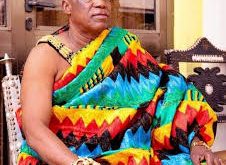
Governor of the Bank of Ghana (BoG), Dr. Johnson Asiama, has stated that Ghana’s foreign exchange market has regained stability, with commercial banks now taking a leading role in driving trade activities instead of the central bank.
Speaking in an interview with the International Monetary Fund (IMF) during the ongoing IMF/World Bank Spring Meetings in Washington D.C. on October 16, Dr. Asiama explained that the BoG’s recent interventions were only temporary measures aimed at cushioning the market during a period of heavy outflows and large external payments.
“Yes, there were allegations about whether we were intervening in the market, but that was not exactly the case.
“There were large arrears in payments to some Independent Power Producers (IPPs), and some domestic debt-affected bondholders wanted to exit. Because the currency had appreciated, they felt it was the right time to take up their investment and we had to allow them to go.”
He added that these developments, coupled with a temporary decline in remittance inflows, created short-term liquidity pressures in the market. Dr. Asiama said the central bank has taken steps to encourage more inflows through commercial banks.
“Remittance inflows are another huge source of FX injection over six billion US dollars per year. However, immediately after the currency appreciated, we saw a decline,” he explained.
“We have written to the mining firms, for example, to take all their inflows through the commercial banks. So we are beginning to see some pickup in interbank FX market activity,” he noted.
He further explained that the BoG now intermediates inflows from the Gold Board while the rest is directed into reserves. “
This morning, when I checked, the market had picked up only 90 million dollars, so 60 million automatically goes into our reserves. Same thing Tuesday, we made available 150 million,” he revealed.
Dr. Asiama stressed that the goal of the central bank is to limit volatilities and maintain smooth market dynamics.
“All we seek to do is to ensure that we have a stable and efficient foreign exchange market and that’s the framework we will maintain going forward.”
Source: Elvisanokyenews.net
 ElvisAnokyenews Latest News Portal
ElvisAnokyenews Latest News Portal



